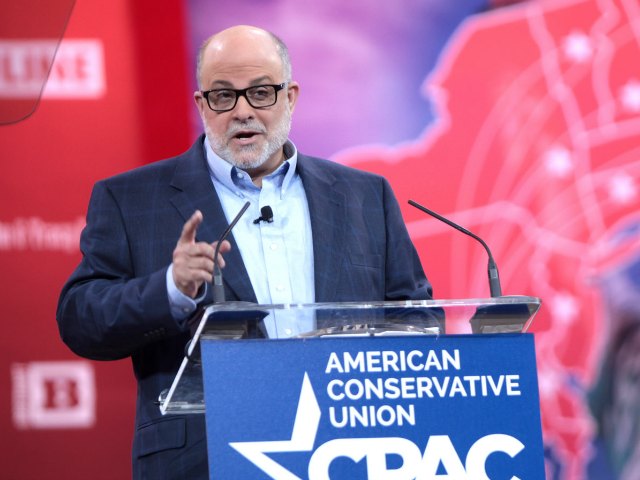Mark Levin writes that Donald Trump’s view on trade agreements is closer to Bernie Sanders’ position than Ronald Reagan’s, reminding that Reagan was a strong advocate for the passage of NAFTA.
From Conservative Review:
The Trump media surrogates have a quandary. They’re not sure whether to compare their man Donald Trump to Ronald Reagan, distinguish him from Reagan, or dismiss Reagan. It depends on the day and the subject. So they spin, and spin, and spin.
One area in which Trump can be nailed down is his overall view of trade. As I explained at Conservative Review, when it comes to Trump’s own financial dealings, he is an unrepentant globalist, from which he has made a fortune. But these days, as he runs for president, the billionaire is a radical protectionist who has repeatedly declared his intention to impose massive tariffs aimed at the economies of other countries, such as Japan and Mexico, and a forty-five percent tariff on products from China. Such broad tariffs would most certainly result in retaliation by the targeted countries. This is a sure job-killer that would also drive up costs of everyday products to low- and middle-class Americans. The net result: economic misery, not just for those hard-working, tax-paying Americans who work in industries that rely on international commerce and trade, but mostly everyone.
This is not Reaganism but Herbert Hooverism. And besides the economic impact, this would lead to empowering further centralized government — politicians, courts, and bureaucrats — and weakening further the private sector and individual liberty. This is precisely what occurred during the Great Depression. The federal government always gets more powerful under these conditions, which is among the reasons constitutional conservatives resist it.
Trump has also threatened Ford Motor Company, should it move forward with building a plant in Mexico. He has warned Apple Inc. against continuing to manufacture iPhones in China. Should he become president, Trump does not have the constitutional authority to manage and control private companies as if they are his own. But the Hugo Chavez-like rhetoric alone should concern freedom-loving Americans.
None of this seems to matter to professional Trump media surrogates, including Julia Hahn at Breitbart. Not only does she ignore these stunning Trump proclamations, she insists, for now anyway, that there really is no light between what Trump is saying and proposing and what Reagan said and did. Her premise is so thoroughly preposterous and her “arguments” so thin, I thought it worth a brief examination. Indeed, the opposite is true. Trump’s position on trade is more akin to socialist Bernie Sanders. As Trump explained to ABC’s George Stephanopoulos on Sunday, “I’m going to get Bernie [Sanders] people to vote, because they like me on trade.”
First, let’s look at the bogeyman, the trilateral agreement with the United States, Canada, and Mexico known as the North American Free Trade Agreement (NAFTA). Trump has said, “We will either renegotiate it or we will break it.” He has called it “a disaster.” Not only was Reagan a powerful advocate for such a trade arrangement, he is credited with giving it birth when he announced his candidacy for president in 1979. Reagan called for a “North American accord.” Indeed, in 1984, as a result of Reagan’s efforts, Congress passed the Trade and Tariff Act, giving the president “fast-track” authority to negotiate free trade agreements. And in 1988, the Canada-U.S. Free Trade Agreement, the predecessor to NAFTA, was signed. (It has since been overtaken by NAFTA, which includes Mexico.)
Reagan was so passionate about free trade generally, and NAFTA in particular, on September 13, 1993, he penned an op-ed for The Wall Street Journal, titled “Tear Down The Trade Wall,” urging the passage of NAFTA. Below is an excerpt, but I would encourage you to read it in full here. I raise this op-ed because of the extensive propaganda campaign underway to justify Trump’s protectionism by comparing him to Reagan[.]
Read the rest of the article here.
